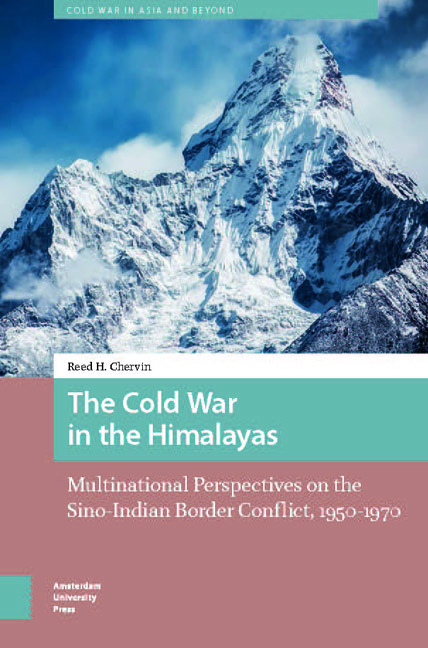 The Cold War in the Himalayas
The Cold War in the Himalayas Published online by Cambridge University Press: 16 April 2024
Abstract
Chapter 5 considers how Western countries engaged with the Sino-Indian frontier leading up to 1962. The first two sections describe Britain's Far East policy and its perspectives on the “Tibet problem.” Section three shows that Australia and New Zealand did not aid Tibetan rebels because they accepted Chinese sovereignty over Tibet. Section four describes the United States’ using Tibet to antagonize Beijing not only by aiding Tibetan rebels, but also by referring to it as a “an autonomous country.” The next two sections deal with British and U.S. assessments of the Himalayan kingdoms and their role in Sino-Indian relations. The last sections trace the relationships that the Commonwealth and the United States had with Burma during the 1950s and 1960s.
Keywords: Tibet problem, Sino-Indian relations, Far East policy, Commonwealth
It was not only India and China that engaged with their shared frontier prior to 1962. Although far from their main concern, English-speaking Western countries analyzed developments in that region and at times offered support to India, Tibetans, the Himalayan kingdoms, and Burma. The West's historical relations with political entities along the Sino-Indian frontier informed Cold War policies. The United Kingdom's relations with Tibet date back to the eighteenth century when British officials viewed it as both a curiosity and a potential trading partner. These views evolved during the nineteenth century as Britain came to regard Tibet as an important pawn in the Great Game. Britain specifically promoted Tibetan suzerainty to establish it as a buffer zone, as first exemplified by the 1907 Anglo-Russian Treaty. International relations scholar Dibyesh Anand argues that Britain used the ambiguous terms “Chinese suzerainty” and “Tibetan autonomy” to “deal with Tibet as a de facto independent buffer state without having to offend China and other Western powers.” By the mid-1940s, this need evaporated and Britain in practice recognized Chinese sovereignty over Tibet—thereby revealing its desire to strengthen Sino-British relations.
Britain's interest in Nepal stemmed from its enlistment of Gurkhas (i.e., Nepalese soldiers for hire), who served throughout the British Empire since the nineteenth century.
To save this book to your Kindle, first ensure [email protected] is added to your Approved Personal Document E-mail List under your Personal Document Settings on the Manage Your Content and Devices page of your Amazon account. Then enter the ‘name’ part of your Kindle email address below. Find out more about saving to your Kindle.
Note you can select to save to either the @free.kindle.com or @kindle.com variations. ‘@free.kindle.com’ emails are free but can only be saved to your device when it is connected to wi-fi. ‘@kindle.com’ emails can be delivered even when you are not connected to wi-fi, but note that service fees apply.
Find out more about the Kindle Personal Document Service.
To save content items to your account, please confirm that you agree to abide by our usage policies. If this is the first time you use this feature, you will be asked to authorise Cambridge Core to connect with your account. Find out more about saving content to Dropbox.
To save content items to your account, please confirm that you agree to abide by our usage policies. If this is the first time you use this feature, you will be asked to authorise Cambridge Core to connect with your account. Find out more about saving content to Google Drive.